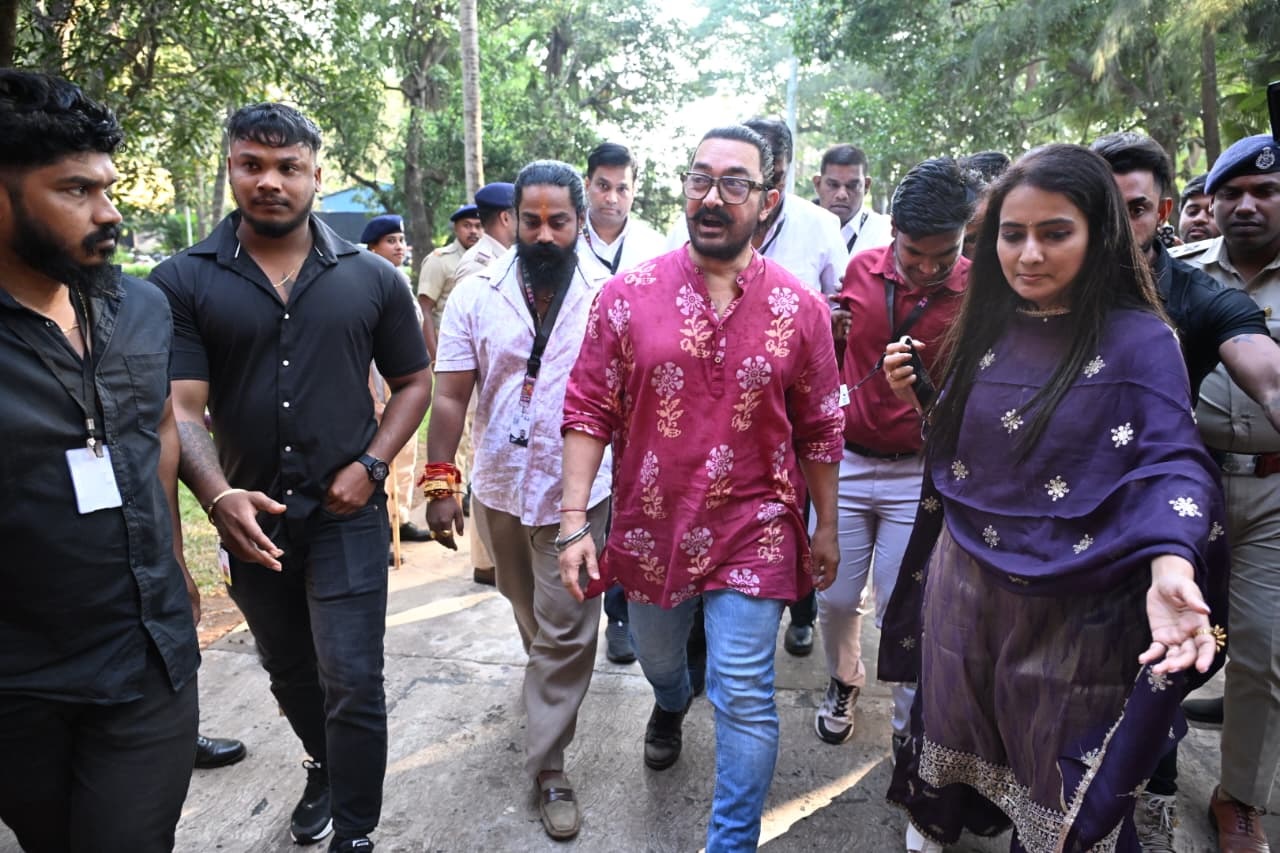
The final Fireside Chat of the 56th International Film Festival of India (IFFI) today, titled “The Narrative Architect of Social Transformation and Inclusivity”, turned into an electrifying affair as actor-filmmaker Aamir Khan entered a packed Kala Academy to a standing ovation.
Moderated by acclaimed film critic Baradwaj Rangan, the session began with a heartfelt tribute to the legendary Dharmendra. Aamir recalled, “I grew up watching Dharamji. Though hailed as the He-Man of Indian cinema, he was equally brilliant in all genres including, romance, comedy and drama.” He added that Dharmendra was a gentle giant and finest actor, whose mastery of language, innate dignity and extraordinary range made him an institution in himself.
The conversation then shifted to Aamir’s own journey, rooted in a lifelong love for stories. He reminisced about his childhood, saying, “I’ve always been drawn to stories. They were a big part of my childhood, and that fascination has guided every choice I’ve made as an actor.” He recalled the tales his grandmother told and the magic of Hawa Mahal on the radio as formative moments.
Aamir emphasized that his approach to cinema is instinctive, not formulaic. “I can’t repeat myself. Once I’ve done a certain kind of film, I want to move on,” he explained. He added that he looks for “stories that feel fresh, unique, and creatively exciting.”
On making unconventional choices, he said, “I choose films purely based on my emotional excitement for the story, even if it goes completely against the norm. Most of my decisions have been impractical by industry standards.” Reflecting on Lagaan, he noted, “Even Javed Saab advised us not to. By all logic, I shouldn’t have become a star, I broke every rule. But somehow, those unconventional choices connected with people, and I’m deeply grateful.”
He stressed the importance of engaging the audience, saying, “People don’t come to the cinema for a sociology lecture. They come to be engaged, whether through emotion, suspense, laughter, or drama.” He clarified that his films’ socially relevant themes have emerged naturally. “I never select a film thinking about which social topic to address next. I only look for scripts that excite me. If a great script carries a social message, that’s a bonus, not the starting point.”
Aamir credited his writers, noting, “Whether it’s Taare Zameen Par, 3 Idiots, Dangal, or Laapataa Ladies, the foundation was laid by the writers. They created the worlds and the characters.” He added that many of his films addressing social issues “happened organically, not by design.”
“I am a complete film personality, not an activist,” he said. “My primary objective is to entertain my audience.”
Looking ahead, Aamir revealed that after completing his current slate of productions, including Lahore 1947 and Happy Patel, he would shift focus entirely back to acting. “From here on, any script I hear will be only for me as an actor,” he said, calling it “a significant shift, but the right time to dedicate myself fully to acting again.”
On how filmmakers can approach him, he suggested, “They can simply reach out to my manager and request time for a narration or send the script across. Sometimes I prefer reading a script, and sometimes I prefer hearing it, so either approach works.”
Aamir admitted that filmmaking is what he enjoys the most. "I did direct once, but that was more out of a crisis, so it doesn’t really count as a planned move.” He added, “The day I consciously decide to take up direction, I’ll probably stop acting, because it will consume me completely. That’s why I’m delaying that decision for now.”
The Fireside Chat concluded with Aamir offering rare insights into his instinct-led approach to cinema, his dedication to storytelling, and his renewed focus on acting.